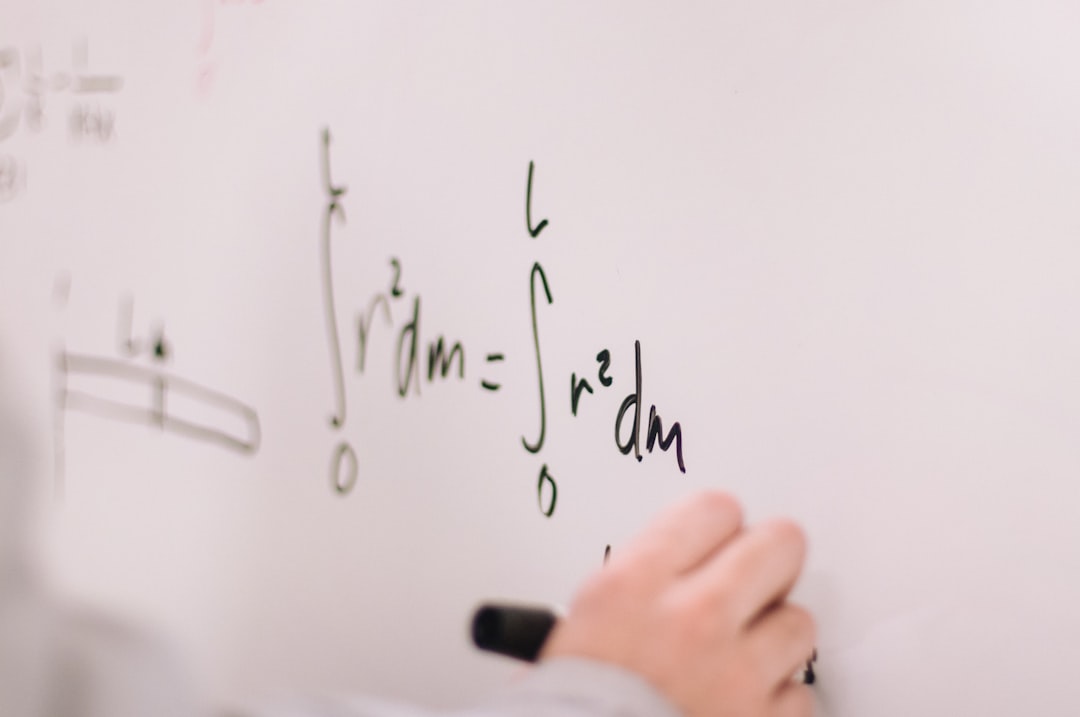On mathematics anxiety
The jury is in - and it seems to be worse for girls.

Mathematics anxiety seems so prevalent that it’s begging for its own DSM-5 entry. I spoke to YouTube superstar Eddie Woo a while back, who gave the discussion the nuance it rarely gets. The Centre for Independent Studies has issued a report, which gives some clarity about what mathematics anxiety is and isn’t. It gives some answers about its prevalence and the potential consequences, but not so much on what to do about it.
The report was written by the legendary David Geary, who argues that there are two types of knowledge acquisition, biologically primary and biologically secondary. Primary knowledge requires no direct teaching, like basic means-end problem solving or the acquisition of oral language. Babies acquire more words than would even be possible with direct teaching in the first few years of life. On the other hand, they don’t spontaneously pick up solving equations. The kind of learning that happens in schools is unnatural and formal education is a recent invention in the evolutionary scheme of things.
Geary also knows a lot about how we learn mathematics. His analysis paper does a great job of summarising the issues, and the prognosis is not great. The good news is that this is a learned or conditioned fear. It’s a response to a situation, and in that sense similar to examination anxiety, which so far also doesn’t have its own DSM-5 classification. It’s not particularly domain specific. It can be treated like any other anxiety response. Exposure therapy through teacher-led tutoring can work. Just as with other inquiry or student-led methods, a lack of structure and guidance can actually exacerbate student anxiety. However, it’s concerning that many families would be unable to afford intensive therapy for their child, not to mention the shortage of teachers and therapists available to do this work.
What’s more concerning than the coverage to date is that girls appear to be more prone than boys, even when controlling for overall test anxiety and anxiety traits. Generally, early struggle in mathematics leads to anxiety, but high performing girls experience anxiety in a similar way to those who genuinely struggle. The resulting performance avoidance cycles can eventually impact achievement. Possibly as a result of anxiety, girls express lower utility beliefs about the subject of mathematics, and this may go some way to explain why fewer girls pursue STEM careers.
There seems to be little consensus on how to practically treat mathematics anxiety. I can say for certain that schools are too stretched to provide the kind of CBT and exposure therapy recommended. Adults — including teachers and parents — are sometimes known to express their own anxieties about mathematics. I’ve done this in front of my own children, who thankfully ignore me most of the time. I recently completed an online introduction to statistics and felt a wild panic come up every time I became cognitively overloaded. Perhaps automaticity of basic math fact recall is key. But, like reading, if it is not embedded from a young age, it may be very difficult to steer students away from a lifetime of avoidance and fear.


I'm personally skeptical that "math anxiety" even exists -- at least as it's generally described.
The usual way that we think about "math anxiety" is that a student basically understands the material, but in the context of an examination suddenly a cloud of fear and tension descends upon them, and they are unable to function. However, in my (admittedly anecdotal) experience, when a student claims that they "really understand the concepts" but they have "math anxiety", it usually becomes very clear after a short discussion that they just can't do the math, and in fact they don't really know how to solve the problems. It's not that the examination somehow caused some form of a mental health episode; instead, the test was the moment when students actually had display their ability, and that's when they found out that they didn't really have a strong grasp of the material.
In the US, there is strong emphasis on "collaboration" and "group work" when studying math, and whatever the merits of this approach, it can enable students who can't actually solve problems to nonetheless get credit. Sure, Taylor and Ted "collaborated" on their math work, but in reality it was Taylor who understood everything and Ted just went along for the ride. For many students, an exam is the first time that they have to solve problems all by themselves, without assistance from their peers, and it's at that point that their weak understanding is finally made clear.
Part of the puzzle of "math anxiety" is that the corresponding phenomenon doesn't exist for other subjects -- there doesn't seem to be any "English anxiety" or "history anxiety" or "Spanish anxiety". Why do students experience this psychological state only with math? One explanation for this is that you can generally fake your way through an English or history exam even if you're somehow fuzzy on some of the details, but if you don't know how to solve a math problem, you just can't do it, and it's hard to cobble together some sort of vague half-answer the way you can in other subjects.
Of course, I understand that it is very unpleasant to take an exam when you simply can't do the problems; I've suffered this myself many times, and everyone who goes through such an ordeal has my sympathy. There's no doubt that the experience is very similar to an anxiety attack, so it's natural to think that that's the problem. But in general I suspect that much of "math anxiety" is simply not being able to perform, and it's not helpful to frame this as some sort of psychiatric disorder.
I love this! Thank you.